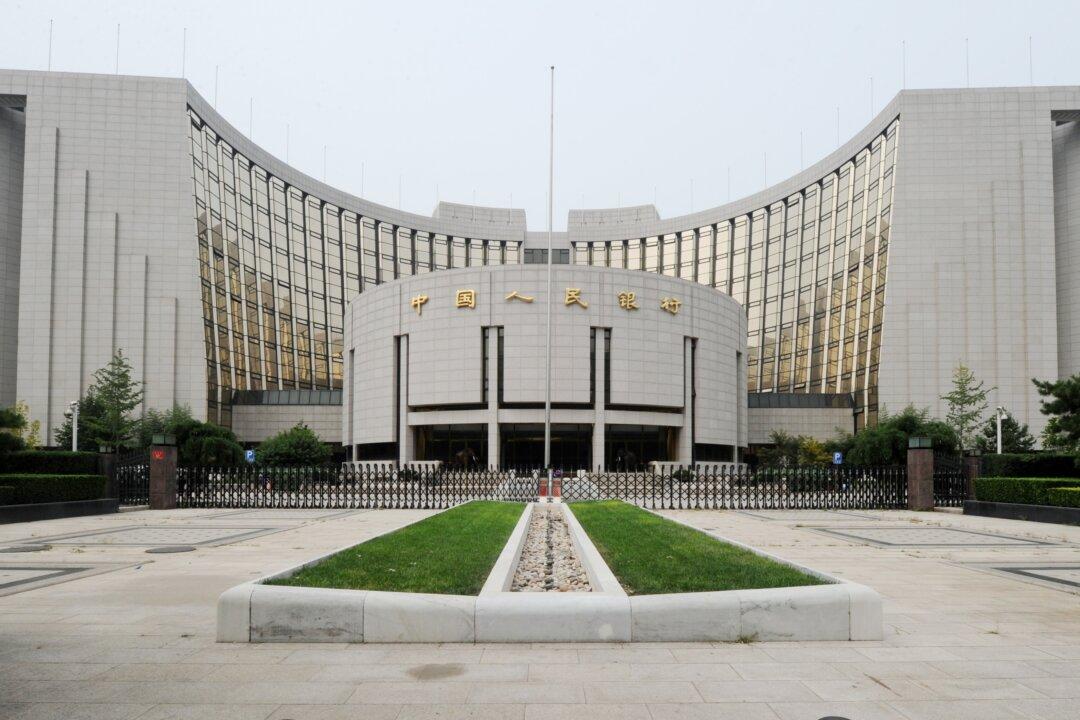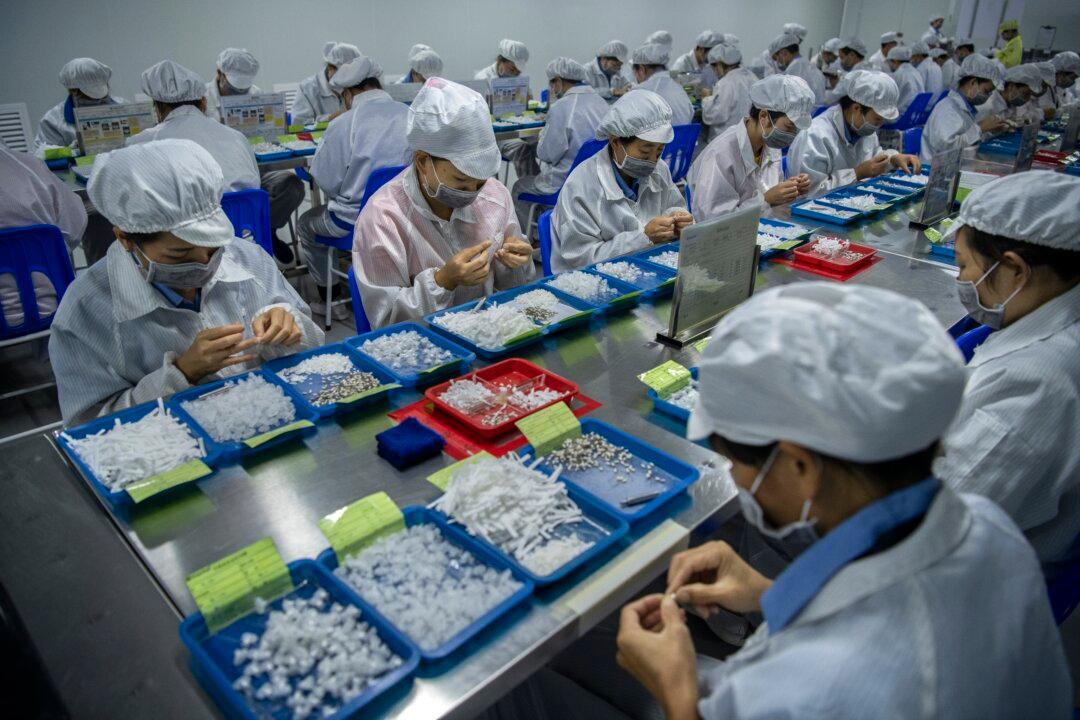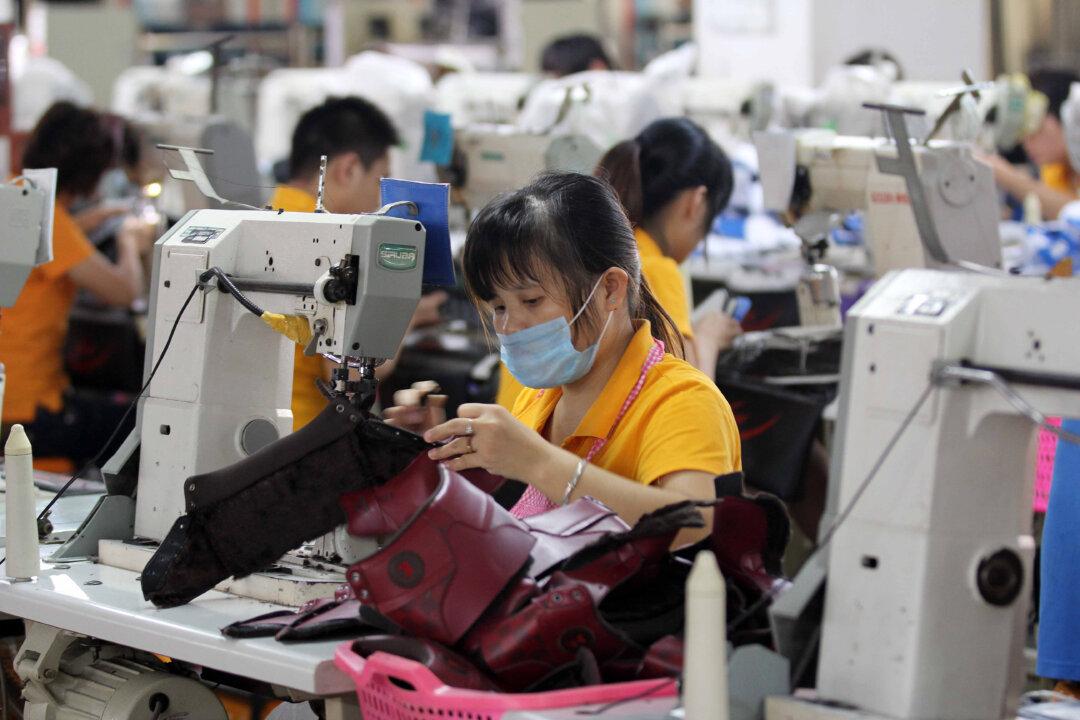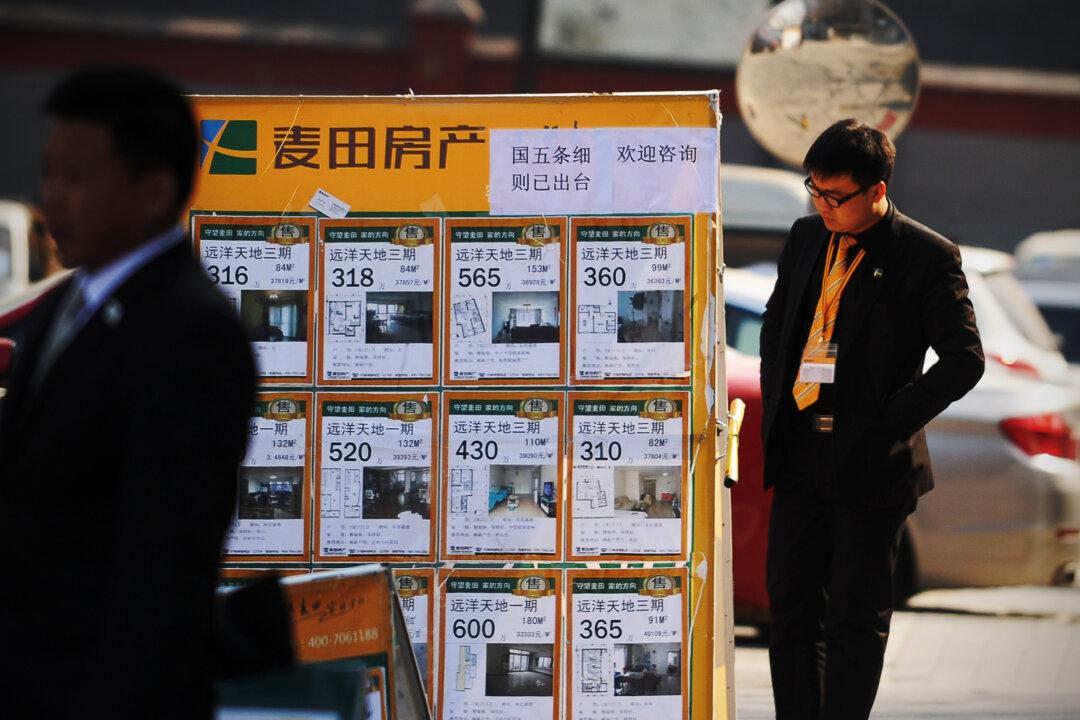China’s central bank, the People’s Bank of China, has distorted the nation’s economy through massive money printing, courting an economic crisis, economists warn.
Experts say expanding the money supply endangers healthy investment and is the root of the country’s inflation problem and skyrocketing housing prices.
Columnist Yu Fenghui once said that if the speed of total expansion of the money supply was synchronized with changes in the real economy (keeping the ratio of total money supply to GDP to around 1.5) then the total money supply equivalent to $12 trillion would have sufficed in China. However, the money supply now is far beyond this figure. The biggest victim of excessive money printing is the domestic consumer, says Yu.
By the end of 2012, China’s M2 measure of money supply was $15.7 trillion, the highest in the world, followed by the United States, with an M2 supply of $10.4 trillion. M2 money includes cash, as well as checking and saving account deposits.
China’s M2 supply increase has alarmed many economists. On April 11, the People’s Bank of China, announced that at the end of March, it had reached 103.6 trillion yuan ($16.7 trillion), 15.7 percent higher than the same time last year. China’s M2 was approximately $2.1 trillion in 2000, increasing to $2.6 trillion at the beginning of 2002. Currently, the supply has exceeded $16.7 trillion, which is six times the value 10 years ago.
Wu Fan, an independent commentator on contemporary Chinese affairs, believes that this increase is due to decisions made in support of Communist Party rule, and relates to China’s current economic development model.
“In the past 30 years, China has depended mostly on investment and exports to stimulate economic growth,” Wu said. “In the first 15 years, investment resulted in positive returns. In the following 15 years, the capital utilization rate was too low, so the funds were either lost in corruption or in various cost increases. The return on investment rate is so low right now that a two dollar investment results in only a one dollar return.”
Wu continued: “However, this money won’t generate any real profit, so the next year more investment money is needed. With the utilization rate getting lower by the year, it will only result in a greater crisis in the future.”
Wu believes that excessive money printing can reduce government debt, but is basically a massive tax, and will inevitably result in the prices of goods going up faster than wages. “Currently, China’s official numbers on inflation and GDP are not trustworthy,” he said.
Earlier this year, high-ranking Chinese officials discussed economic transformation several times, and acknowledged the economy will otherwise face a crisis.
According to Wu, however, interest groups in the Communist Party are in control of China’s financial levers, and are not wont to give up those perquisites.
Translation by Hsin-Yi Lin. Written in English by Carol Wickenkamp
Read the original Chinese article.




